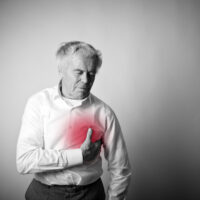How to identify and treat the rashes in the skin?
A skin rash can bring about an abnormal change in the color of the skin and its texture. These are normally caused by inflammation, which can be triggered by a host of reasons. There are numerous types of rashes, which include lichen planus, granuloma annular, eczema and pityriasis rosea. Of all these types, eczema is the most common type of skin rash making the skin reddish, scaly, itchy and inflamed.

How to identify skin rash?
Skin rash identification is an important part of diagnosis and treatment of the disease. One must be able to identify the signs and symptoms since they can vary from one person to another. In the case of adults, skin rash typically occurs in the elbows and in areas which can bend such as the inner part of the knees, inner thighs, neck and other areas. In the case of young kids, skin rash can occur on the knees, elbows, neck, face and scalp.
Some of the most common indications and symptoms of skin rash include:
Itchiness and swelling in the affected region
Redness of the skin
Dryness and formation of a scaly layer on the crusted skin
Thickening of the affected area due to constant scratching
At times, skin rash can lead to the formation of blisters, which may ooze out when they are scratched and the broken area may also become infected.
How is skin rash diagnosed?
Skin rash identification can help in the skin rash treatment to a significant extent. It typically starts with the in-depth evaluation with the history of clinical conditions of the patient and the present symptoms. The dermatologist may test the area where the skin has become scaly and crusted to differentiate the skin rash from any other skin conditions.
How is skin rashes treatment executed?
Atopic eczema can be treated with different types of medicines, medicated creams, and ointments. Most of these contain steroid and hydrocortisone which, in turn, aid in controlling itching, swelling, redness, and discomfort caused by the skin rash. If the patient is suffering from severe levels of skin rashes, then cortisone pills and shots along with the application of creams may be required.
Besides undergoing a thorough skin rash treatment, it is also important to prevent the condition by reducing stress, avoid the skin’s contact with scratchy materials, harsh soaps, and detergents. You should avoid sudden changes in humidity and temperature and also try to avoid situations such as overheating and sweating.











